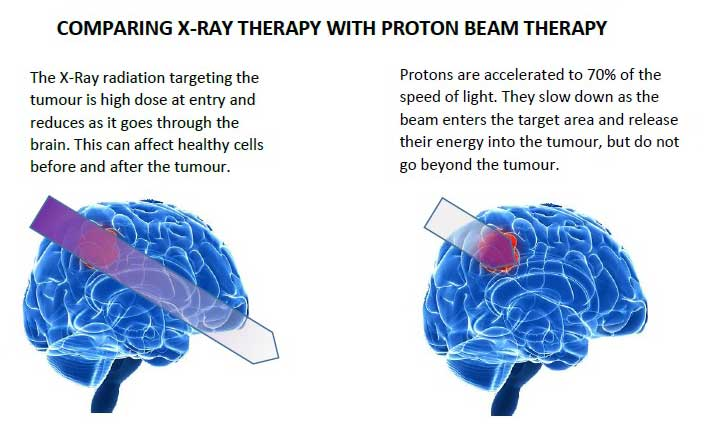Important Facts For Prelims
Proton Beam Therapy
- 02 Mar 2023
- 3 min read
Why in News?
Currently, there are no government facilities that offer proton beam therapy treatment in India. The treatment is considered a viable alternative to radiation for treating solid tumours, especially for head and neck cancers.
What is Proton Beam Therapy (PBT)?
- About:
- PBT is a type of cancer treatment that uses a beam of high-energy protons to destroy cancer cells.
- A proton is a positively charged elementary particle that is a fundamental constituent of all atomic nuclei.
- Unlike traditional radiation therapy, which uses X-rays, PBT can precisely target the tumour while minimising radiation exposure to surrounding healthy tissue.
- PBT is typically delivered via a large, complex machine called a cyclotron, which accelerates protons to high speeds and delivers them to the tumour site.
- PBT is a type of cancer treatment that uses a beam of high-energy protons to destroy cancer cells.
- Problems Associated with Proton Beam Therapy:
- Setting up a PBT centre is fraught with infrastructural and regulatory challenges stemming from safety concerns from the Department of Atomic Energy.
- There are concerns about safety since hydrogen is a highly volatile element, and daily checks are required to prevent leaks.
- A PBT machine is a huge contraption, up to three storeys tall and costs nearly ₹500 crore.
- Setting up a PBT centre is fraught with infrastructural and regulatory challenges stemming from safety concerns from the Department of Atomic Energy.
- PBT in India:
- Apollo Hospital in Chennai is the only centre in South and West Asia that offers PBT.
- The hospital has treated up to 900 patients, and 47% of cases were brain tumours.
- Prostate, ovaries, breast, lungs, bones, and soft tissues cancer patients have also seen promising results through PBT.
Way Forward
There is a huge unmet need for access to PBT treatment in India. The government should focus on setting up PBT centres in various parts of the country to provide more cancer patients with access to the treatment. While setting up the PBT centre, it is important to address safety concerns, infrastructural and regulatory challenges. The success of PBT in Apollo Hospital Chennai can be an inspiration for other healthcare providers to invest in this technology.





